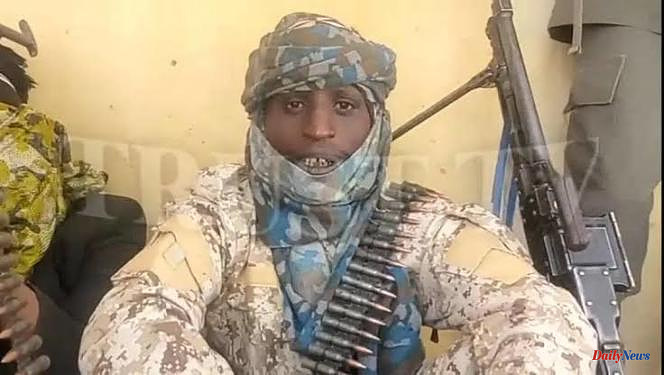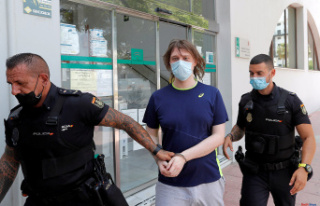He is not yet 30 and is already one of Nigeria's most wanted criminals. Once a simple herder, Bello Turji has become a "warlord", one of those ravaging the northwest of Africa's most populous country. Turji is the head of a gang of several hundred members operating in the states of Zamfara, Sokoto and sometimes Katsina. Through serial atrocities, he has forged the reputation of a man of unspeakable cruelty.
For years, heavily armed criminal gangs have been ramping up attacks in the northwest and center of the country with impunity, killing thousands. Born of clashes between Fulani herders and farmers over resources, this violence has turned into a wider conflict, fueled by arms trafficking. On the eve of the presidential election, on February 25, whole swaths of the territory remain controlled by these criminals, whose leaders are notably capable of levying taxes there.
Bello Turji, 28, is one of the best known of them. Especially since he is the only one to have granted numerous interviews, wearing a turban, in military camouflage, a weapon slung over his shoulder. Born in 1994 in Shinkafi district, Zamfara, into a wealthy family of Fulani herders, Turji did not go beyond primary school, like many in rural areas. However, he received a basic Islamic education at the local Koranic school.
“Turji knows nothing but rural life, where everything begins and ends with cattle. It is the source of everything: sustenance, prestige and political power,” says Professor Murtala A. Rufai, of Usman-Danfodio University. He is a "cowboy" with a bloody trajectory: born "herder", turned "bandit", became "leader" and now "warlord controlling many bandits and territories", continues Professor Rufai, reference in the matter and who has already questioned him.
He says he turned to cattle rustling in 2011 when the family herd was itself stolen, a reason given by many "bandits" who suddenly lost their livelihood. And when his six brothers and sisters were killed by a vigilante group - murders that he said went "unpunished" - Bello Turji says he took up arms.
"Viral" interviews
With the dizzying population growth that accompanied the 20th century in Nigeria, land became the object of fierce competition. Gradually, conflicts over the looting of crops, water pollution or cattle theft became widespread. In the northwest and center, many have formed gangs – Zamfara authorities estimate there are 30,000 bandits in the northwest today – and vigilante groups, also accused of extrajudicial killings .
Active in Zamfara, today a lawless zone, Bello Turji is responsible for the death of hundreds of people during deadly raids. In December 2021, for example, he ordered his men to surround a crowded bus and set it on fire. Twenty-three civilians, including pregnant women, were burned to death. "After that, he became someone," says Professor Rufai. But he enjoys excessive publicity in the media. I could name ten warlords far more deadly and dangerous than Bello Turji. »
The difference with others? “His viral interviews. So much so that he has become the "first name - an evil name - that comes to mind when talking about bandits", making him the "primary target of the state". If he agrees to expose himself in this way, it is above all to force negotiations with the local authorities who are bombarding his camps, according to the professor. The "warlord" calls for an end to discrimination against the Fulani and the disbanding of self-defense groups, which he accuses of having killed his brothers and sisters.
In August 2022, a peace agreement was reached with the local authorities of Zamfara. But the army, opposed to the truce, bombard Turji's house in his absence during the baptism of his newborn. Twelve people are killed, including his older brother. After this event, the bandit leader issued a thinly disguised threat to the authorities: "I am ready to accept peace as war. Whatever the government chooses, we can give back a hundredfold. »












